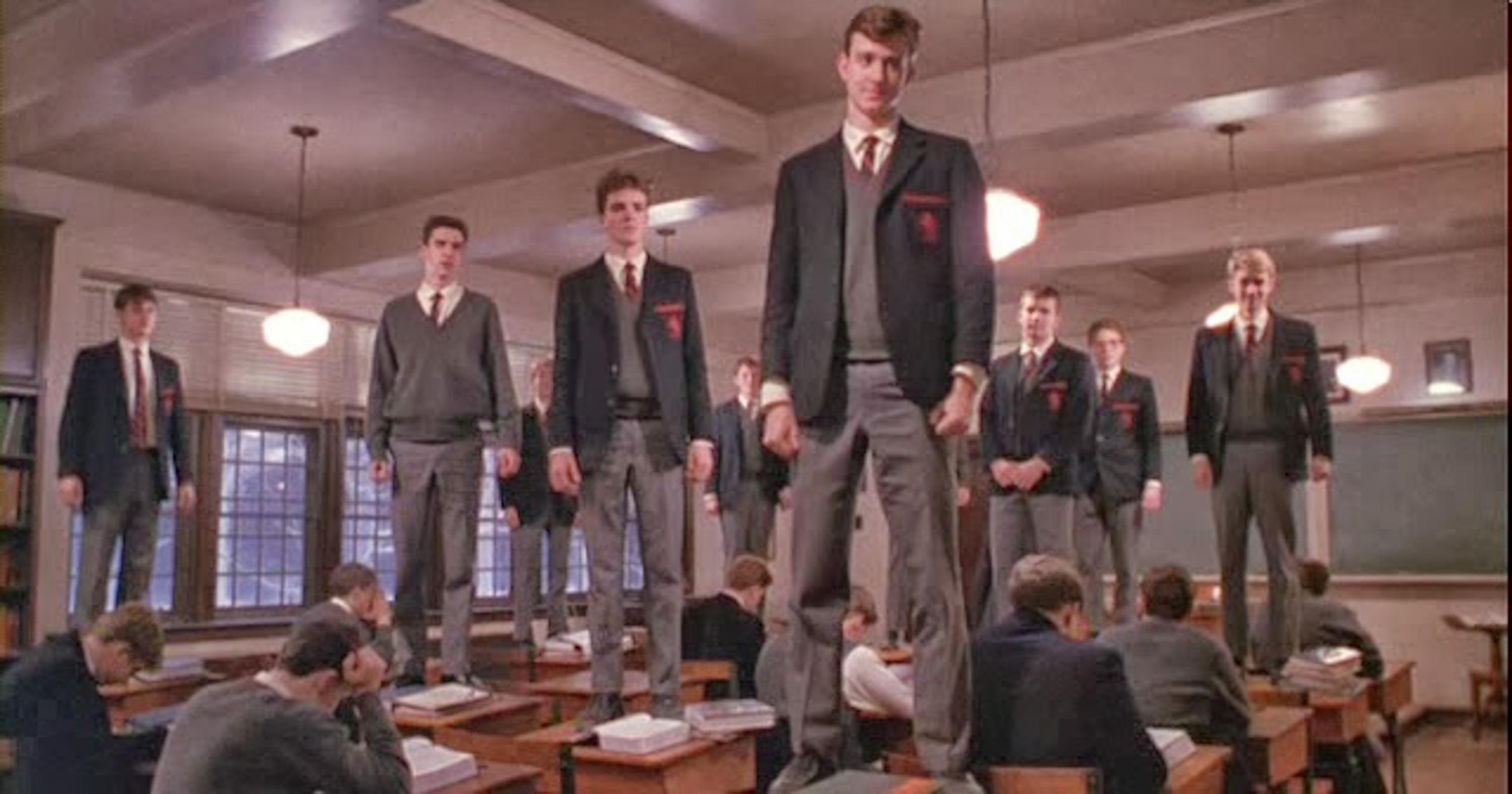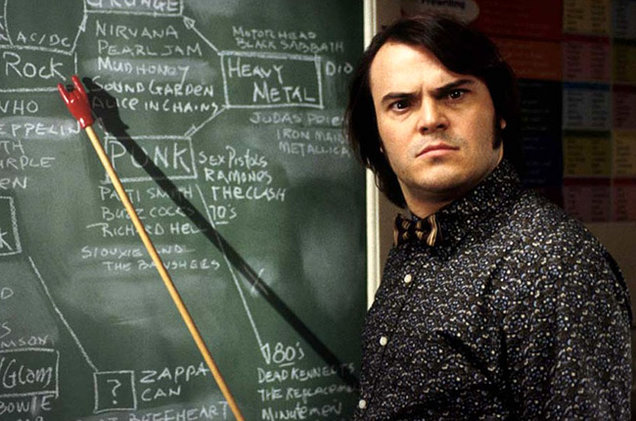Skip to:
- Give Today
- Contact Us
- Media
- Search
News & Stories
Leadership Development Program
Undergraduate Teaching Program
Common search terms
There’s this moment in Dead Poets Society when Robin Williams, who plays an English teacher, receives a standing ovation from his students. A classroom of previously uninspired Welton Academy boys, who have transformed into poetry-reciting angels, stand atop their wooden school desks, while quoting Keats’ “O Captain, My Captain” as a token of gratitude. It’s truly heart-warming.

The closest that I’ve gotten to this experience is having a student climb atop a science lab bench, flick me a sneer and then proceed to jump right out of the window next to him, like a Skittle that accidentally falls out of the packet. More heart-wrenching than heart-warming.
Or how about the plot line of School of Rock: Jack Black becomes a fraudulent substitute teacher of a prestigious elementary private school and turns a group of fourth graders into a rock band that wins the Battle of the Bands – to pay off his rent.

Me? I’m here trying to coordinate my students, who sometimes behave like fourth graders, to write raps about cell organelles, brainstorming rhyming words for “mitochondria” and “lysosome” and the like. It does feel like a battle of sorts… but it’s doing nothing for my rent.
Don’t get me wrong, teaching is arguably one of the most rewarding careers. The reality is that teaching is a hard slog.
For me, it involves a lot of late nights, piles of marking, significant compromise, long distance relationships, mentally juggling the needs of 80 or so children’s needs alongside my own, a taxing workload, a never-ending to-do list, bureaucracy and administration. It is helter skelter.
Not to mention the looming anxieties about broader issues: trying to tackle a data culture, the expansion of privatisation and charterisation of public schooling, the decline in sustainable education investment, challenging student behaviour, student absences and so much more.
Perhaps, though, the most important thing that I’ve learned about teaching so far, is that it’s not really about some vacuous plea to “save the world” or “change the face of education” or be perfect.
It is about giving the 20 or so young faces in front of me the best of my time and my best effort. It’s about making a connection and allowing kids to feel cared for. We try to help them, try to educate them and if it’s not enough then we do it some more. We dust off our knees, proactively fix what we can and remind ourselves to focus on our personal locus of control.
The importance lies in making students feel comfortable, safe, valued and included, before they can begin to appease the “learning intentions” or “success criteria” for the day. They deserve to be listened to and to have a chance – and, for some, school may be the one place where this is possible.
Making a difference as a teacher is about the small things – sometimes the movie-esque moments do occur, but they don’t involve crowds breaking out into song or fireworks. Success becomes more a series of leveraging the small wins.
When a student says, “Yeah, now I get it!” or “This is fun!”
When another breaks his or her own personal best or the class laughs at my jokes.
When someone fist pumps for using a new piece of vocabulary or the whole class breaks into a dance party midway through a practical experiment.
When students stop me in the yard to chat about a part of their lives whether it be about the latest newfangled trend, their worries, their hopes and dreams or I see them step up to challenges, stand up for each other or step out of their comfort zone…
Or when my most difficult student tells me that I’m a “bloody legend” at the end of long day.
These moments charge my day with warmth. The kids really are alright; they are the ones that make this profession so rewarding.
I’ve made a fool of myself in front of the class (countless times) and have learned through a journey of mistakes and hard lessons to not take myself so seriously. Things go wrong and run off-script, very often. In fact, the whole gig is more like a bloopers reel rather than the final cut.
The best pedagogical tool that I’ve learned to use? A smile. A sense of humour is so very crucial to survive the vicissitudes of teaching.
It is pain and joy at the same time. I won’t say it’s easy, but it’s worth it.